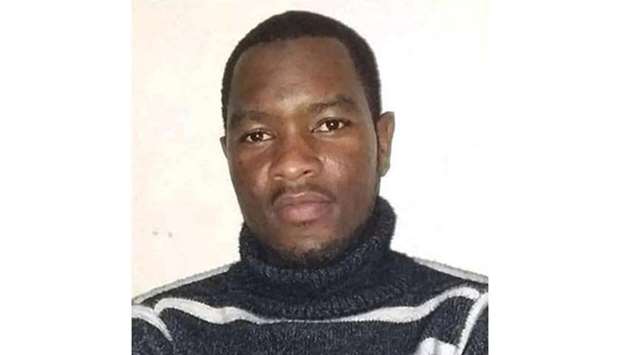Media rights groups have been pressuring the Maputo government to help locate a Mozambique journalist who went missing one month ago in militant-hit Cabo Delgado province, as friends and relatives begin to fear the worst.
Community radio journalist Ibraimo Abu Mbaruco disappeared on April 7, in the northern district of Palma -- the epicentre of attacks by militants seeking to establish a caliphate.Mbaruco went missing on his way home from the radio station in the evening, shortly after texting a colleague to say he was surrounded by military forces.
The journalist, who is in his thirties, reported on daily life in Palma, including the insurgency -- which the government had denied until late last month.
"It has been a very long time since he has disappeared," said one of Mbaruco's colleagues, who did not want to be named.
"We are beginning to fear that something worse has happened to him."
The government has not officially commented on the case.
Police in Cabo Delgado have repeatedly said they know nothing about Mbaruco's whereabouts or the circumstances of his disappearance.
"We have no information about him yet," police spokesman Augusto Guta told AFP on Friday. "As soon as we know something we'll tell the press."
One week after Mbaruco went missing, Guta told reporters "family sources" had suggested the journalist was dead, adding that police were unable to verify it.
The Mozambique branch of the Media Institute for Southern Africa (MISA) on Friday said it has been lobbying President Filipe Nyusi to ask for support in searching for Mbaruco.
The group, which advocates for press freedom in southern Africa, has also approached the national police chief without avail.
"MISA Mozambique triggered a series of processes to locate and release the journalist, including addressing a letter to President Nyusi," the group said in a statement.
MISA met Nyusi on April 27, after which they were asked to "refer the case to the Attorney General".
According to the statement, police sources told MISA that Mbaruco was "taken by military personnel" to "interrogation barracks" in the northern Mueda district.
Another group of journalists told AFP they were also referred to the public prosecutor after writing to Nyusi.
"We are sure that Ibraimo has been kidnapped by the military," said Mbaruco's colleague.
He compared the case to that of another community radio journalist, Amade Abubacar, who was kidnapped by soldiers last year and kept in barracks for over two weeks.
Abubacar was eventually taken to a civil prison and detained for more than three months.
He was accused of publishing classified information regarding the insurgency and charged with crimes against state security.
"That's how they did it last year with Amade," said Mbaruco's colleague, drawing parallels with Abubacar's ordeal.
"What is strange this time is that it is taking too long to release him to freedom or transfer him to a civilian prison," he added.
An unnamed police source told AFP Mbaruco was suspected of "collaborating with insurgents".
"We continue to think that there is a strong probability that he (Mbaruco) is being held by the military," Reporters Without Borders (RSF)'s Arnaud Froger said via email on Friday.
Froger, who also drew parallels between Mbaruco and Abubacar, added that all possibilities were still being considered.
Since the beginning of military attacks in the gas-rich Cabo Delgado province in 2017, at least five journalists including Mbaruco and activists working for Amnesty International have been arrested by government troops.
Fighters have terrorised remote communities in the Muslim-majority northern region.
Locally, members are known as Al-Shabaab, although they have no known links to the group of that name operating in Somalia.
More than 1,100 people have been killed since the start of Cabo Delgado insurgency, including at least 700 civilians, according to the Armed Conflict Location & Event Data Project (ACLED).
The unrest has forced more than 200,000 people to flee and raised concern among energy giants operating in the gas-rich region.
The Mozambican government admitted the presence of Islamic State militants in the country for the first time after police reported a "massacre" of 52 villagers who had refused to be recruited into the ranks of the shadowy group.
"The silence coming from the highest authorities is extremely worrying," said Froger.
"In this province, the situation is such that journalists have as many reasons to fear violence linked to the militant insurgency as the threat of being kidnapped by soldiers in their own country."

